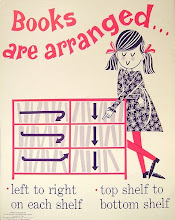Perl: Sorry, how is "felt sense" not like inspiration? The picture to the left is a visual translation of Perl's notion of "felt sense" within the writing process.
Perl basically structures an outline for everything before "felt sense" and how we use it after we experience it...but it's really like using a Y-shaped stick to find water. Don't get me wrong...I personally love the idea of "felt sense" because I do think that inspiration exists. I was startled by its mention, however, because the last few readings have been about the formulaic structures of the writing process and how we're fools to believe in divine inspiration. I don't know. Maybe I can't properly use "projective structuring" to make all of you understand what I'm trying to say. Whatever, Perl.
Runciman: This essay was a breath of fresh air. I really was getting depressed about all of these researchers sort of throwing their hands in the air at the inevitability of not being able to completely structuralize the writing process so that it's teachable. (That sentence may not have made sense but I just feel like chugging along here, ok?) I seriously wanted to high-five Runciman, as dorky as that sounds. I loved this quote -- "Another pleasure, a recurring one though its frequency is unpredictable, lies in finding some accurate phrasing. This phrasing need not be particularly felicitous or pleasing to others; what makes it a source of pleasure is its accuracy" (204). For me, that's what is so great about reading text that's written by a talented writer. It's basically THE reason I enjoy literature. For instance, what do I have in common with a stuffed shirt like Thomas Hardy? Basically nothing, but some of his sentences perfectly articulate feelings I've had or ideas I believe in...it's relatability through the accuracy of his phrasing. Hardy's just an arbitrary example but I agree with Runciman that there is immense pleasure in finding the perfect way to say exactly what you want to say. There's so much pleasure, in fact, that it comes as a surprise that you were able to do it at all. I guess that's what Flower and Hayes found confusing about the term "discovery."
Maybe this isn't the place for my Oscars commentary, but people can stop reading at this point if they don't care to hear my thoughts about the Academy Awards. It's the one television program I refuse to miss, so I get pretty excited about it. I get emotional about it too, but let's not get into that. I'll just sum up my reactions in a few phrases. Paltrow's Zac Posen dress was my favorite. I felt bad that they wheeled out Peter O'Toole just for him to lose (though he's just an arrogant Irish dandy to me). Forest Whitaker's speech was fantastic and reaffirmed my love for that particular awards show. Why does the press use the word "size" a few seconds after mentioning the name "Kate Winslet"? Speaking of which, I love the fact that Meryl Streep told that tool, Ryan Seacrest, that she's a size 14 which matches her 14 total Oscar nominations. I predict that she's going to be the new female Jack Nicholson in the "ah, just screw it!" category of life. Finally, watching Scorcese win his Oscar was really a treat but it made me miss Stanley Kubrick a lot.
